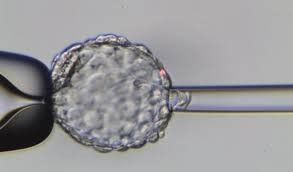Genetic testing can be purchased directly from providers or require a medical referral to access. Some providers require pre and or post-test counselling with a genetic counsellor. There are several different types of tests which are designed to answer a question you may have about yourself, and your family’s future health and history.
A test uses a sample from which your DNA is extracted from and tested to determine the presence of a genetic variant. Those variants are then compared to the current knowledge of what that specific variant’s function is. That test may provide a definitive answer, suggest a conclusion or be inconclusive. As the knowledge constantly improves the interpretation of some results may change.
As a user it is important to know the question you would like answered and how reliable and useful the results are for your chosen test/s. The reliability and utility of tests may be variable. A broad overview of the different types of tests and reasons to get tested is provided below and is meant for those new to genetic testing.
Ancestry
Ancestry testing looks at markers in your DNA to estimate your ethnic mix. Those markers are matched against a database and using an algorithm the provider can provide you with an estimate of your ancestral origins.
The results may list a proportional ethnic mix and can be used as a general guide to determine your ancestry and familial relationships to other people and gain insight into your heritage.

Carrier screening
Carrier screening also referred to as pre-conception screening and reproductive genetic screening identifies disease causing genes which may be passed down to your offspring. Patterns of inheritance will determine the likelihood of the inherited gene becoming disease causing. With your general practitioner or genetic counsellor being able to determine the probability of a gene/s being pathogenic.
A carrier screening test is often a panel that looks for a single or specific group of disease-causing genes, with providers offering a variety of panels.
Carrier screening is useful for couples to plan their reproductive choices in line with their personal wishes and values and to make pre-emptive support and treatment decisions.
Diagnostic
If you have symptoms of a disease genetic testing can confirm a diagnosis. This is useful in providing a diagnosis, guiding best treatment and allows for cascade screening in relatives if appropriate.
Not all diseases have a known genetic cause and genetic testing may not be necessary in the diagnosis of disease.
Epigenetics
The epigenome can regulate the ways in which genes are expressed. The epigenome is inherited and can change over time due to lifestyle, environment, and age. Epigenetic changes are reversible and do not alter the DNA sequence.
Epigenetic testing providers offer tests that identify epigenetic alterations and use that information to predict functional change be it in a beneficial or disease-causing manner.
Immigration
For the purpose of immigration, the relevant countries immigration authority may ask an applicant to confirm biological relationship to a relationship already immigrated to that country. If proof of a family relationship is not available, you could be asked to complete a DNA test to confirm that relationship.
An immigration genetic test can confirm or refute a familial relationship.

Newborn screening
Newborn screening is available for newborns to test for a number of genetic conditions that may not be clinically evident in the newborn period and develop later in life. A range of conditions are tested for and often the test is available as a part of a government sponsored health program with no cost incurred for the parents. A small sample of blood is taken by pricking your babies heal a few days after birth. Parental consent is required for the test.
The availability and cost of the test may differ from country to country.

Non-invasive prenatal testing (NIPT)
In the early stages of pregnancy, a non-invasive prenatal test (NIPT) screens for some chromosomal abnormalities in your baby and provides a prediction of your child developing a chromosomal condition. The test can also include an option to predict the child’s gender. The results can be used to decide if further testing is required. The test does not test for all chromosomal disorders nor does it test for inherited disorders.
The test uses a sample of the expecting mothers blood which can examine circulating stretches of the baby’s DNA. NIPT is offered by a number of providers some of which have branded products for their NIPT offerings. The cost and number of chromosomal disorders tested for differ between providers.
Nutrigenomics
Nutrigenomics looks at the relationship between diet, health, and gene expression. What you eat can influence your genes and their expression. The genes you have can also influence how you process food be it in a beneficial or potentially pathological way.
Nutrigenomic tests can be both diagnostic and predictive and may be used to provide a diagnosis and or inform the development of a diet plan based on your results.
- Nutrigenomics analyses the effect of nutrient intake on the whole genome.
- Nutrigenetics studies genetic variants that effect individuals’ response to diet.
Providers may use either term. Further information on the specifics of the test is available on the providers website.
Oncogenetics
Oncogenetic testing analyses genes that are associated with cancer (oncogenes) and can be used to predict the likelihood of developing cancer. Cancerous tissue may also be tested to determine cancer subtype and guide best treatment.
If there is a family history of cancer, testing for hereditary cancer can look at certain types of cancer. With providers offering specific single gene tests and panels that look for the presence of a range of oncogenes.
Providers may offer tests referred to as oncogenetics, oncogenomics, hereditary cancer and cancer panels. They may mean different things depending on the provider. Further information on the specifics of the test is available on the providers website.
Paternity
Genetic testing can confirm or refute the paternity of a child. Such a test may be done when there is uncertainty about paternity or there is a desire to establish paternity in the case of adoption.
Paternity testing may be performed before or after the birth of a child.
Pharmacogenetics
Pharmacogenetics tests for how people respond to medicines based on their genetic profile. This can be useful to identify the most effective medicine and may reduce the time in finding optimum pharmacological treatment.
Your genes may impact how medicines are processed in the body which could increase or decrease their effectiveness. Pharmacogenetics can assist in identifying the most appropriate medicine for maximum efficacy and identify medicines that have minimal side effects.
Predictive
Predictive testing or pre-symptomatic testing can provide information about whether or not someone will develop a specific condition later in life. Testing maybe done for medical reasons to identify a potential condition, or to determine how genes may relate to fitness performance, diet or in some beneficial way.
To identify a specific condition the test may be performed when there is a family history of a condition and the genetic variation is known. Testing may be completed on a person who has no symptoms.
Results may confirm the presence or absence of the genetic alteration and if present it is possible to determine the likely hood of a change in function. Some variants will definitely cause a change in function which may be pathological or beneficial, others may not. Reporting on predictive testing will provide a summary of change in function probability.
Some of the general considerations when seeking predictive testing for medical conditions are,
- Is there family history of disease with a known genetic cause?
- Is the predictive value of the variant known?
- What potential impact does the variant have on future health if known?
- What is the likely age of developing the condition and what potential treatments are available?
A predictive test can confirm or predict future disease and health or uncover an unknown disease risk. Some predictive tests will require a referral and possible genetic counselling, other may be directly bought from the provider.
Pre-implantation genetic testing (PGT)
Pre-implantation genetic testing (PGT) is used to test embryos prior to implantation in IVF for single gene or chromosomal disorders. As the embryos are grown in an IVF laboratory a few cells are taken for testing. PGT testing can allow for the selection of embryos which have a higher chance of developing to full term.
There are a range of PGT testing options,
- PGT-A tests to make sure that the embryo has the right amount of chromosomes.
- PGT-M tests for single gene disorders.
- PGT-SR tests to verify if there are any structural chromosomal disorders.
What is tested for depends on your health and fertility history.

Single nucleotide polymorphisms (SNPs)
A single nucleotide polymorphism (SNP) is the substitution of a single DNA base at a specific location. The substitution may have a beneficial, deleterious or have an unknown effect on the individual. SNP testing can identify single gene variations and can be used to both diagnose and predict, the likelihood of a change in function being beneficial or disease causing.
SNP tests may test for a specific change or have a broad panel looking at multiple conditions.
SNP test providers may offer tests that are either predictive or diagnostic.
Wellness
Wellness genetic testing broadly encompasses a range of tests designed to look at multiple genes that are generally associated with health and wellbeing. Tests may include looking at genes associated with health, nutrition, mental health and sporting performance.
Providers may offer tests that are either predictive or diagnostic.
Whole exome and genome sequencing
Whole exome sequencing (WES) scans all the protein coding parts of the genome to identify genes that may be disease causing or beneficial to your health. Whole genome sequencing (WGS) looks at all the parts of the genome including the exome and non-protein coding components, which also have a role in health and disease.